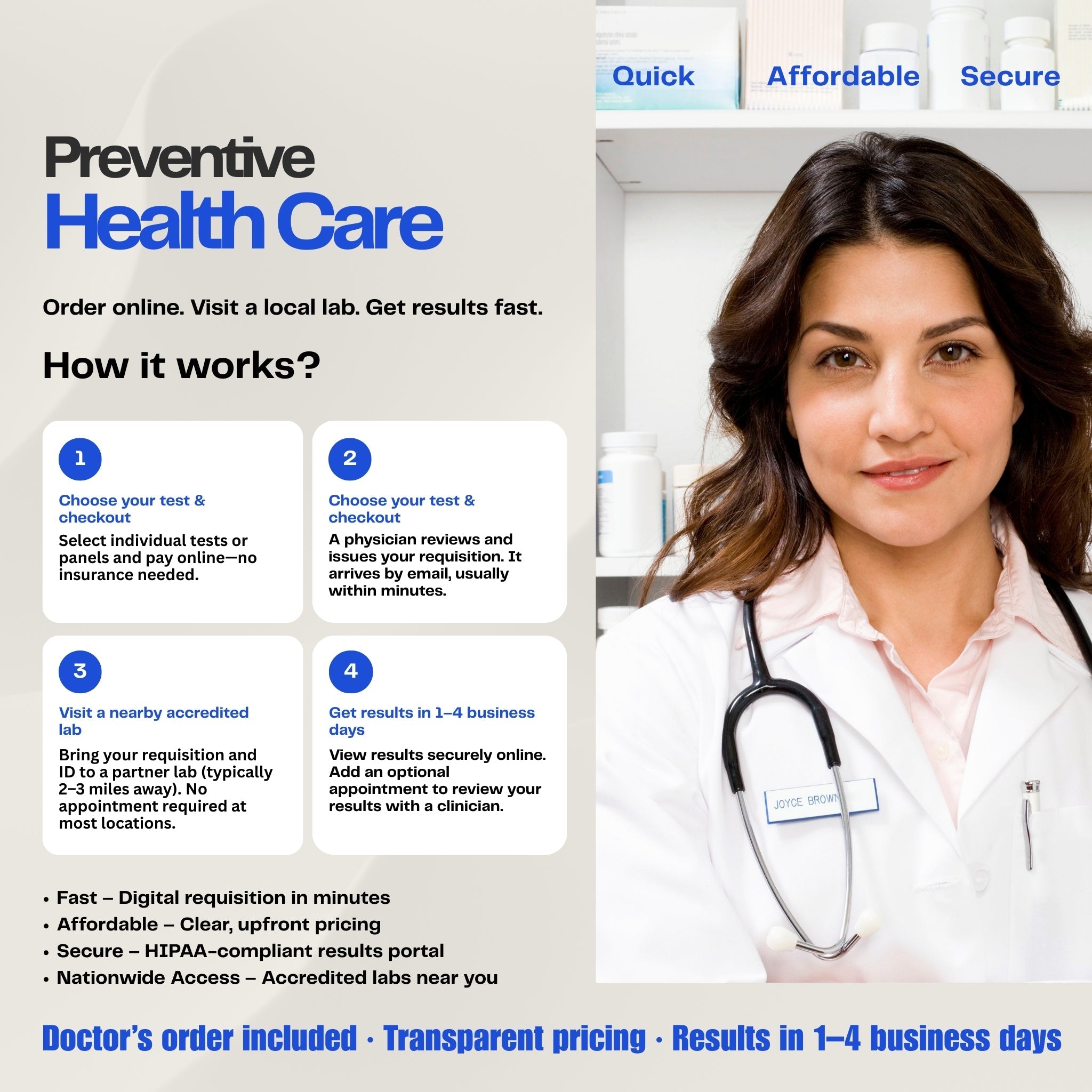

High Sensitivity CRP (hs-CRP) for Cardiac Risk
Become a member to unlock discounted pricing and exclusive perks.
The High Sensitivity C-Reactive Protein (hs-CRP) test measures levels of inflammation in your body, a crucial indicator for assessing cardiovascular disease risk. This advanced blood test provides valuable insights beyond traditional cholesterol measurements, helping to identify potential risks for heart attack and stroke. It is especially beneficial for individuals with existing heart disease risk factors or a family history of cardiovascular issues.
Quick facts
Serum or plasma
2–4 business days
No Fasting Required
Licensed physician review and requisition included with every test.

How It Works?

once Test Order is received, Our physicians will review your request and email you the easy-to-follow requisition form.

Find the closest partner location—most are within 2–3 miles—and drop by for a quick, no‑appointment blood draw.

Once your sample is processed, we’ll send your report straight to your inbox within 1–3 business days. Just click the link to view your results anytime.

Have Questions about results? Book a phone or video visit with one of our doctors. They’ll walk you through your report, explain any findings, and recommend next steps





